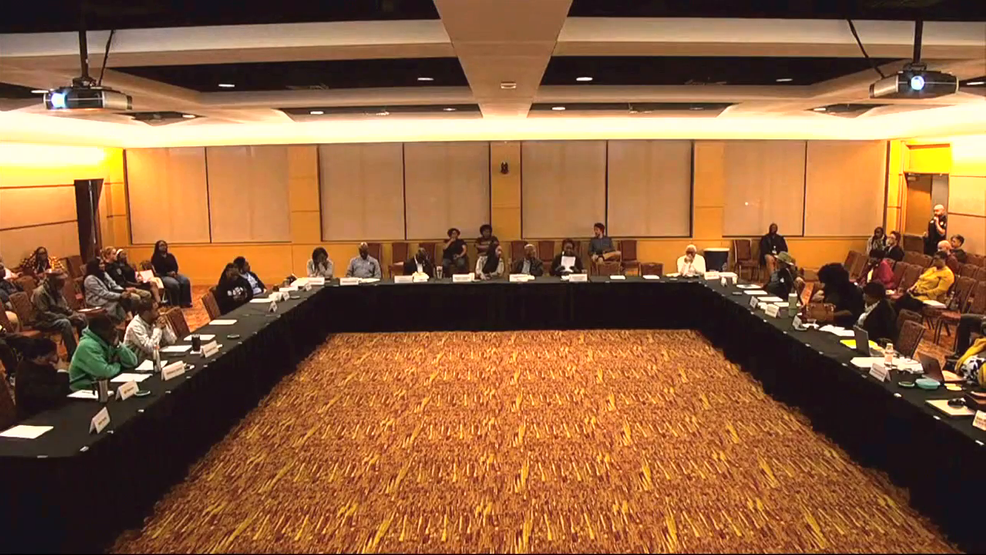
ASHEVILLE, N.C. (WLOS) — During Monday night’s reparations commission meeting, community members and city leaders gathered to discuss a few more recommendations.
The recommendations focused on education, including early childhood education for Black students and more resources for Black students in post-secondary institutions.
News 13 previously reported on four economic projects the commission recommended last week:
REPARATIONS COMMISSION SUGGESTS ECONOMIC PROJECTS FOR ASHEVILLE’S BLACK COMMUNITY
Asheville-Buncombe County’s 25-member Community Reparations Commission has been on a mission to address racial inequalities.
Dr. Dwight Mullens, who recently stepped down as Chair of the commision, spoke about the importance of addressing these issues in Buncombe County and the reason behind forming the Community Reparations Commission.
“The commission was formed a little bit over two years ago and it followed the passage of resolutions passed by the city, the Council of Asheville and then the Buncombe County commissioners and the resolutions was basically admitting and apologizing for the participation in racially discriminatory policies ranging from enslavement, segregation and lynching and mass incarceration, even over renewal, and it ended with the admission of being involved with the policies created with disparities that we are currently experiencing in housing, in education, in health care and economic development and justice,” he explained.
DWIGHT MULLEN STEPS DOWN AS CHAIR OF ASHEVILLE, BUNCOMBE REPARATIONS COMMISSION
“We have five areas, and we call them IFA’s that are addressing the five public policy areas and they’ve been working over the last two years to gather data, address the data and find best practices or to initiate brand new practices in closing disparities in each of the five public policy areas,” he added.
COMMUNITY REPARATIONS: WHAT WOULD A CASH PAYMENT PROGRAM LOOK LIKE?
Dee Williams, one of the reparations commission members, pushed back. Williams said that she voted against the recommendations because she believes they are not legal or financially feasible.
“A lot of people feel that if the city is sued, or a litigation brought, it’s not their problem. But it is because it detracts from the resources, both fiscal and human, that could be better directed by the reparations process and used by the community,” she explained.
The recommendations during Monday’s meeting were approved. Mullen said the next step now is to get approval from the city.

